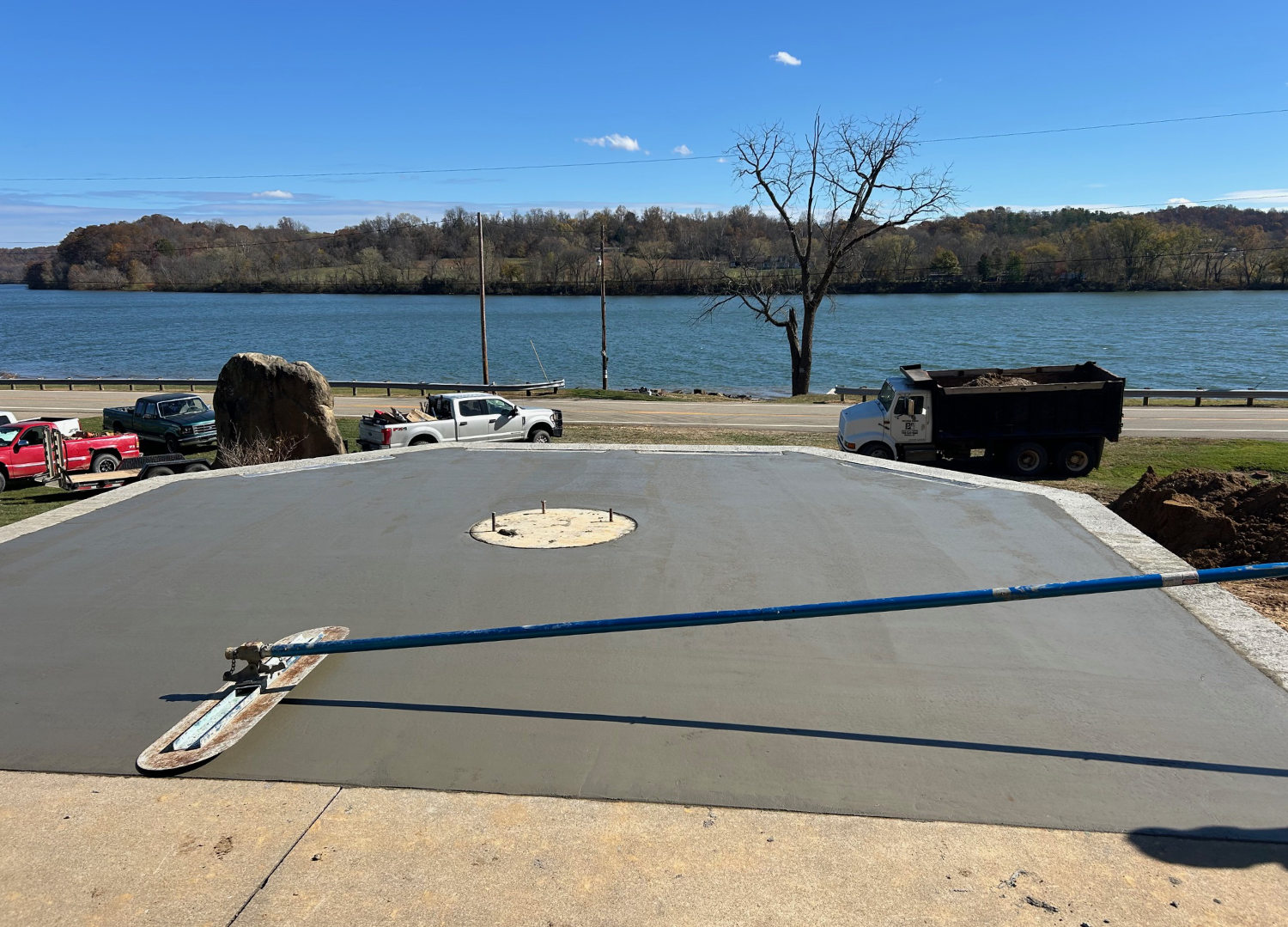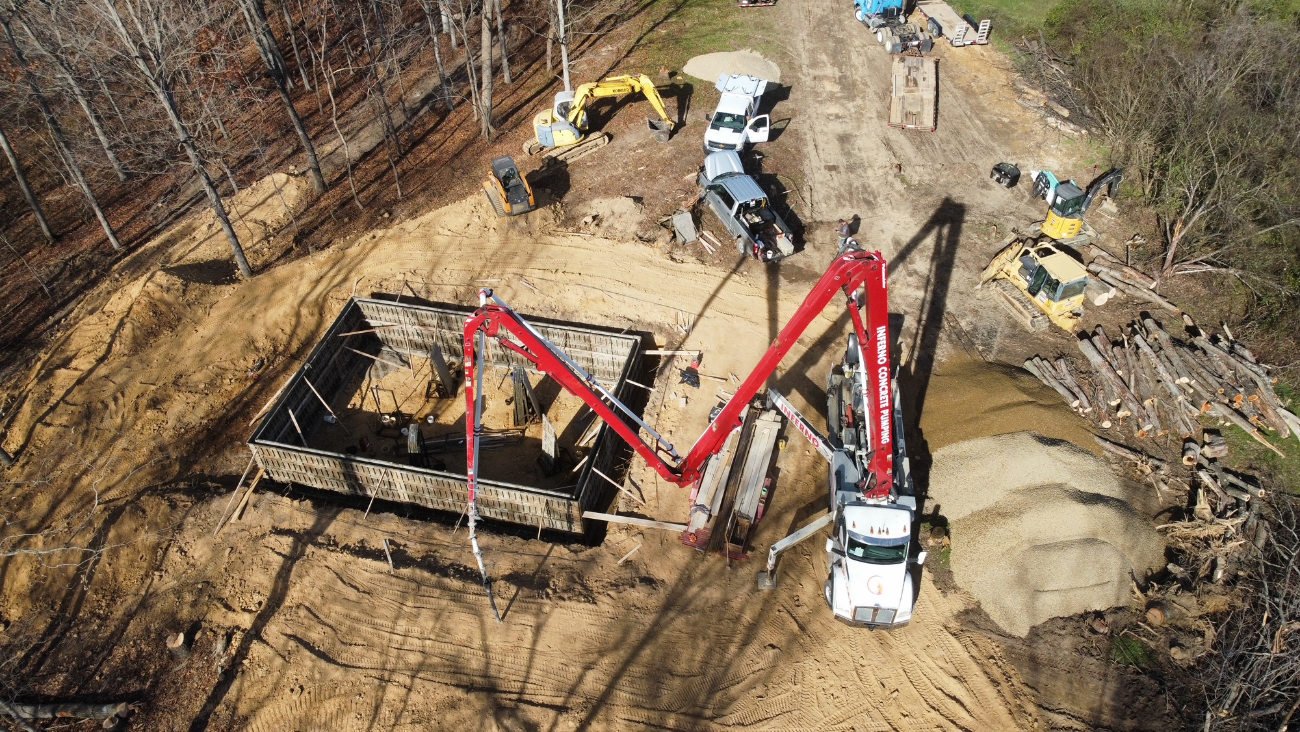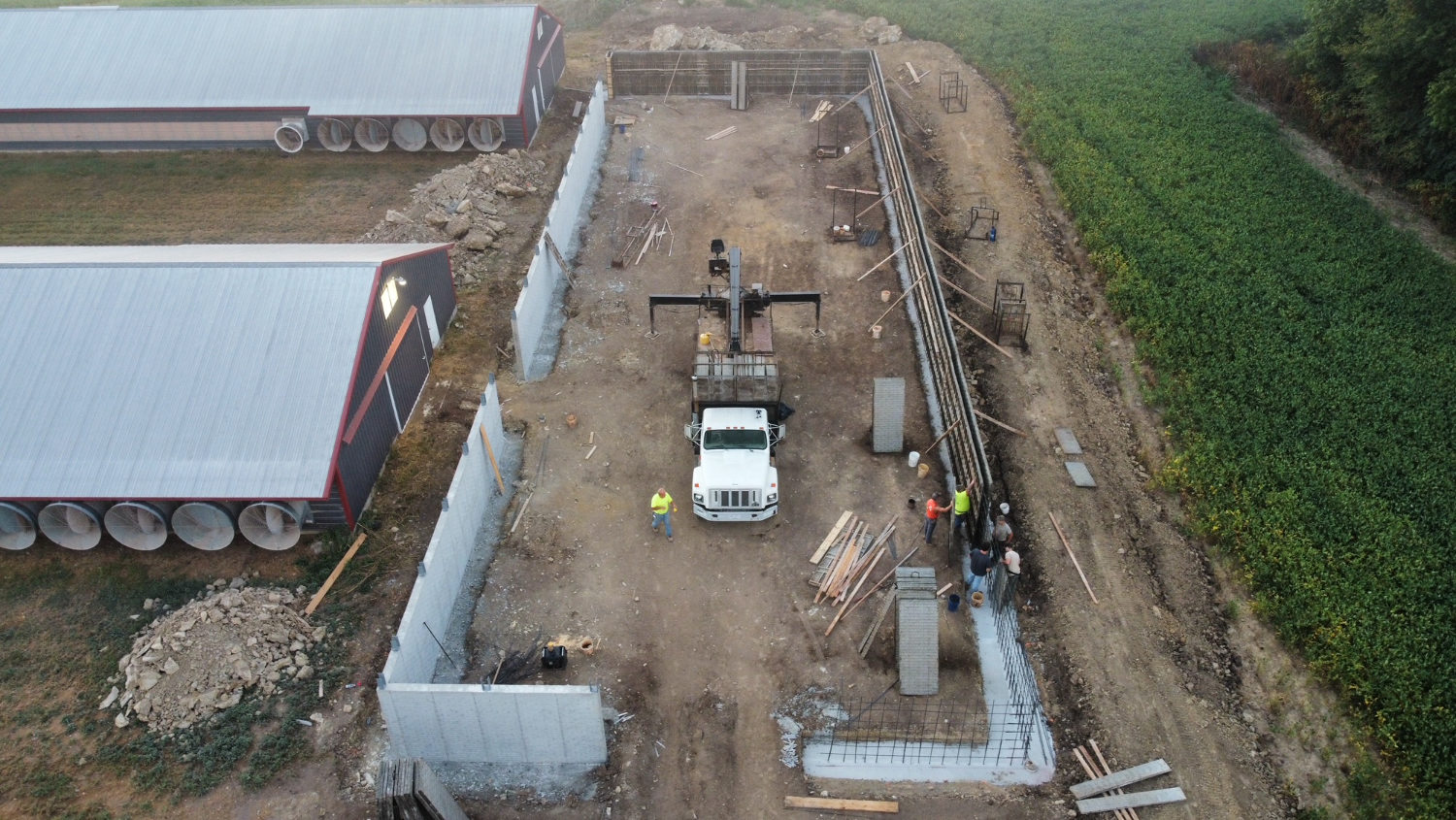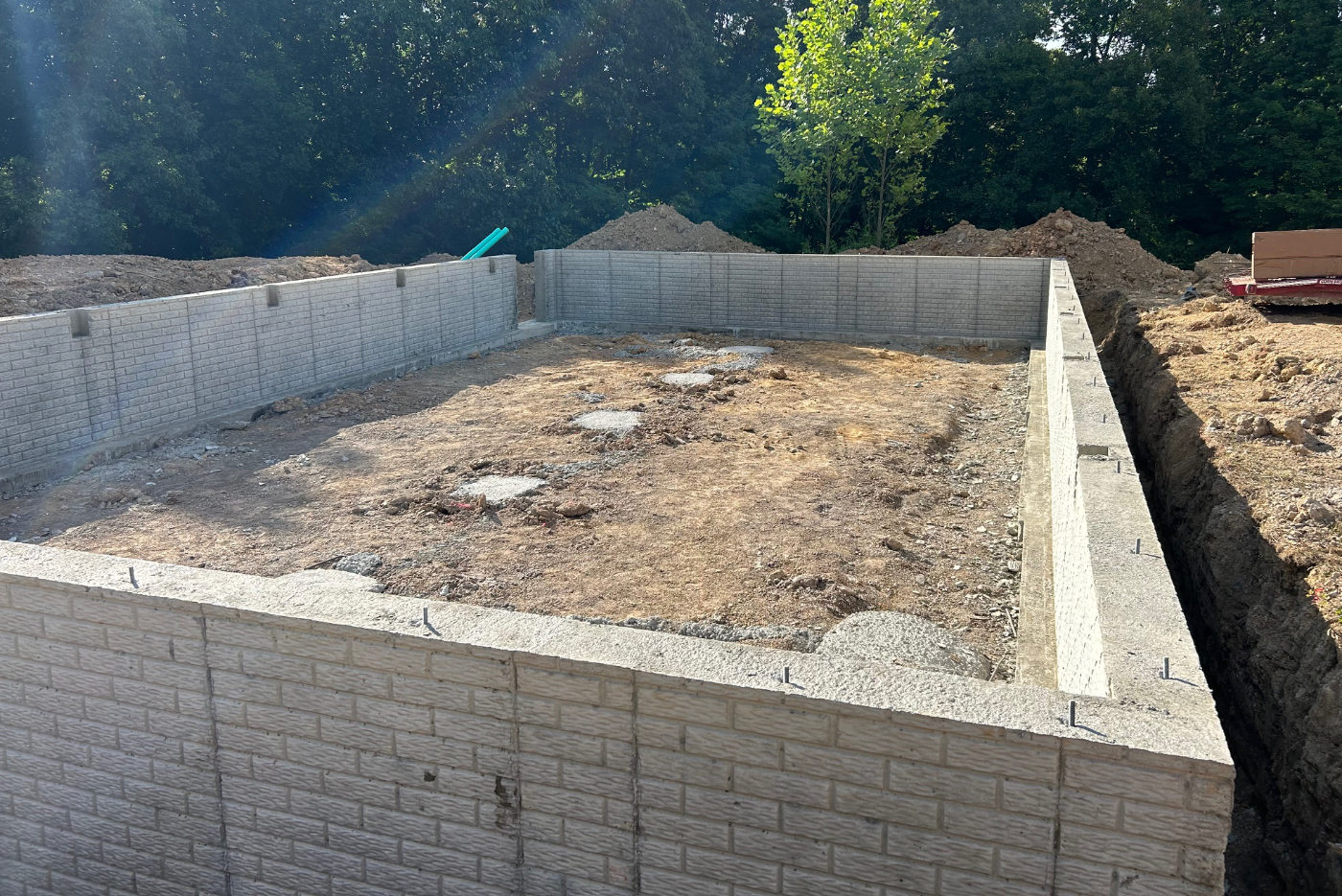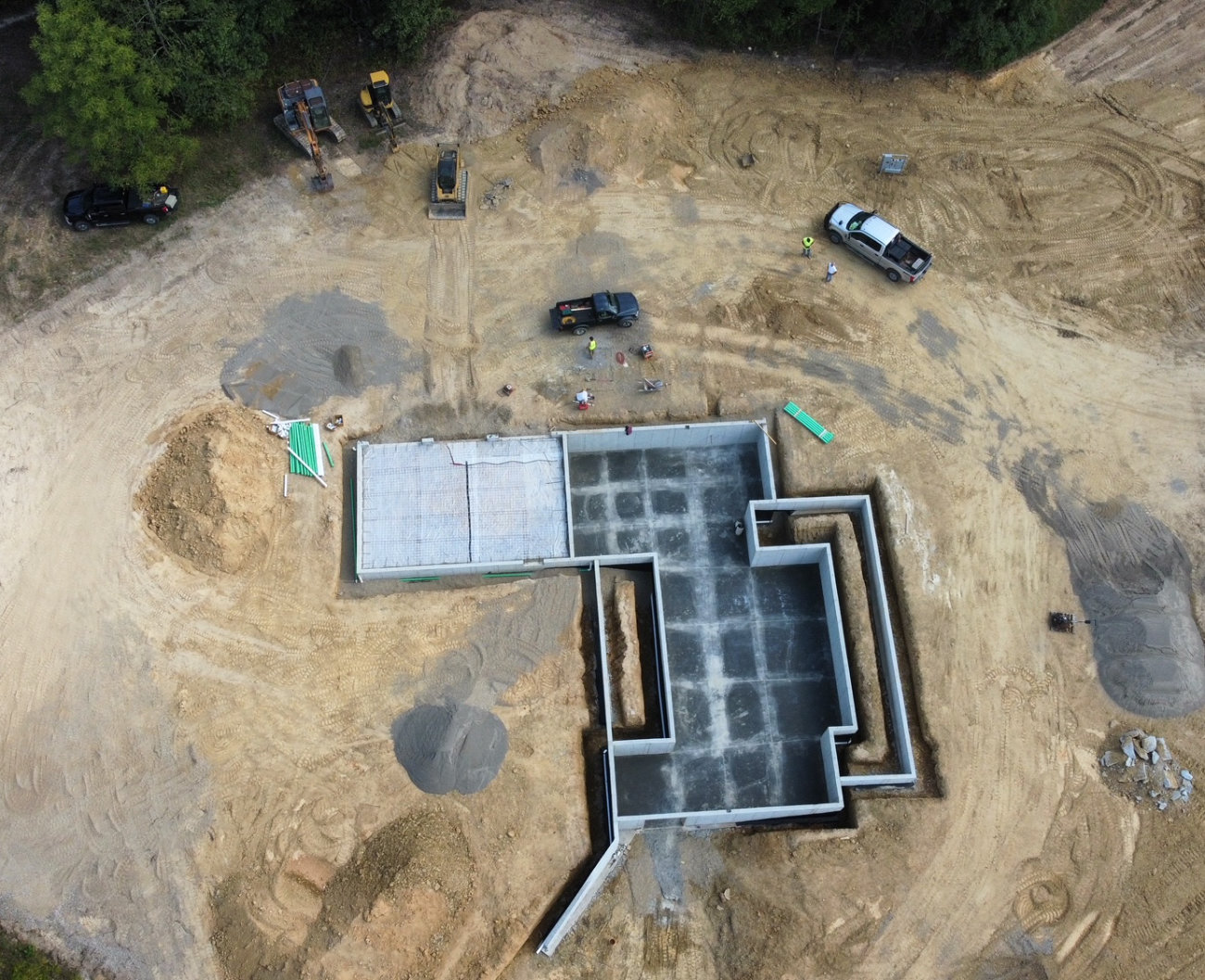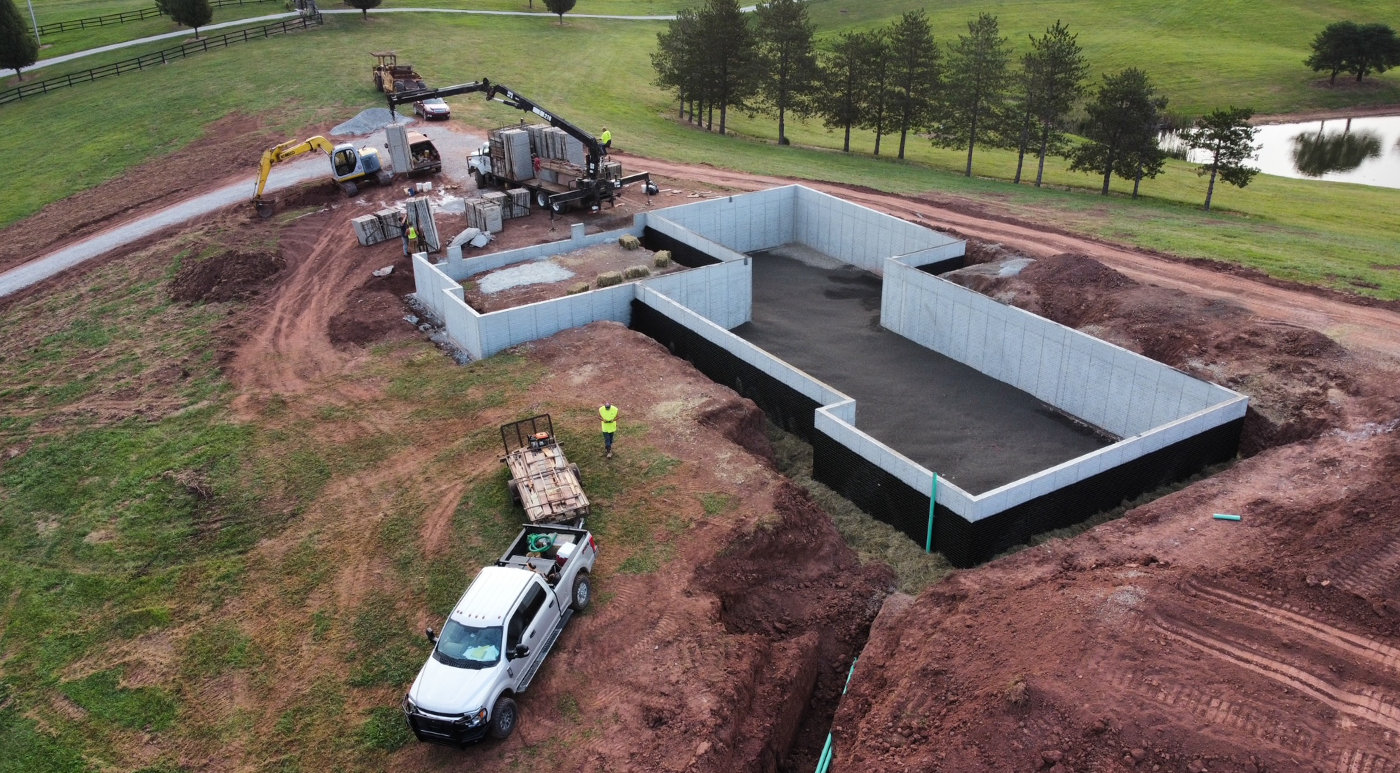Poured Concrete Wall Services
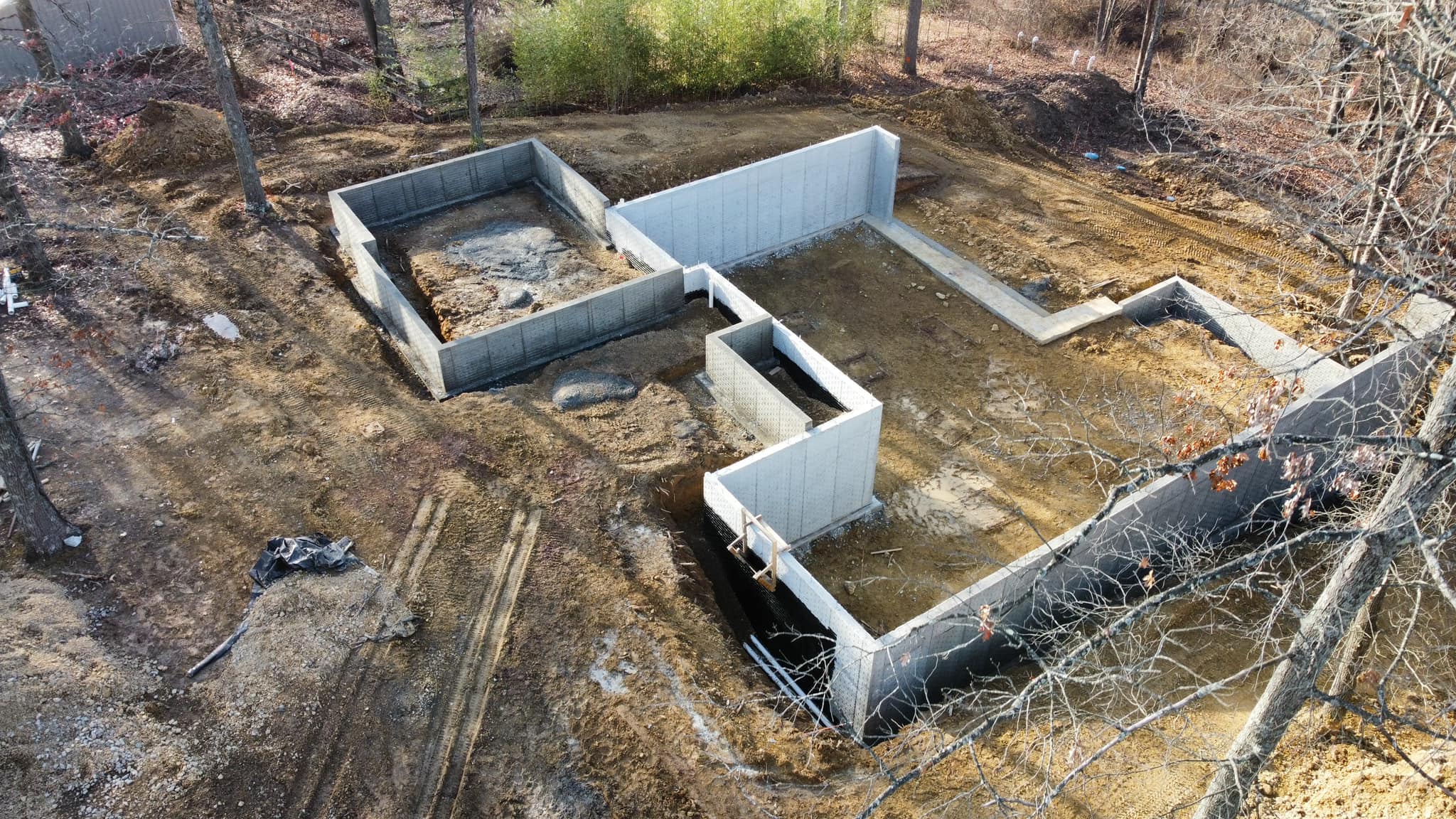
Foundations & Basement Walls
We pour concrete basement walls, crawl spaces, and slabs for new homes and also foundations and walls for commercial and agricultural builds (Feed lots, barn foundations, dykes, containments, and silage pits).
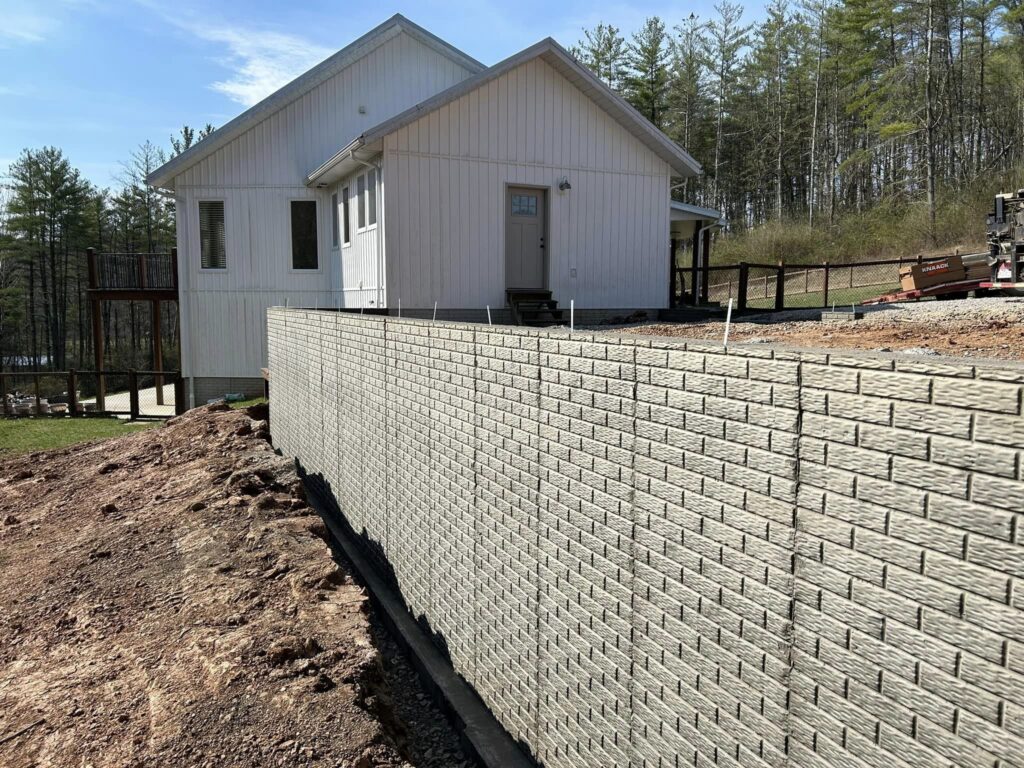
Retaining Walls
We build poured concrete retaining walls for residential and commercial building sites, whether you want to create more usable yard, to protect your property/restrain soil, or to begin pool construction.
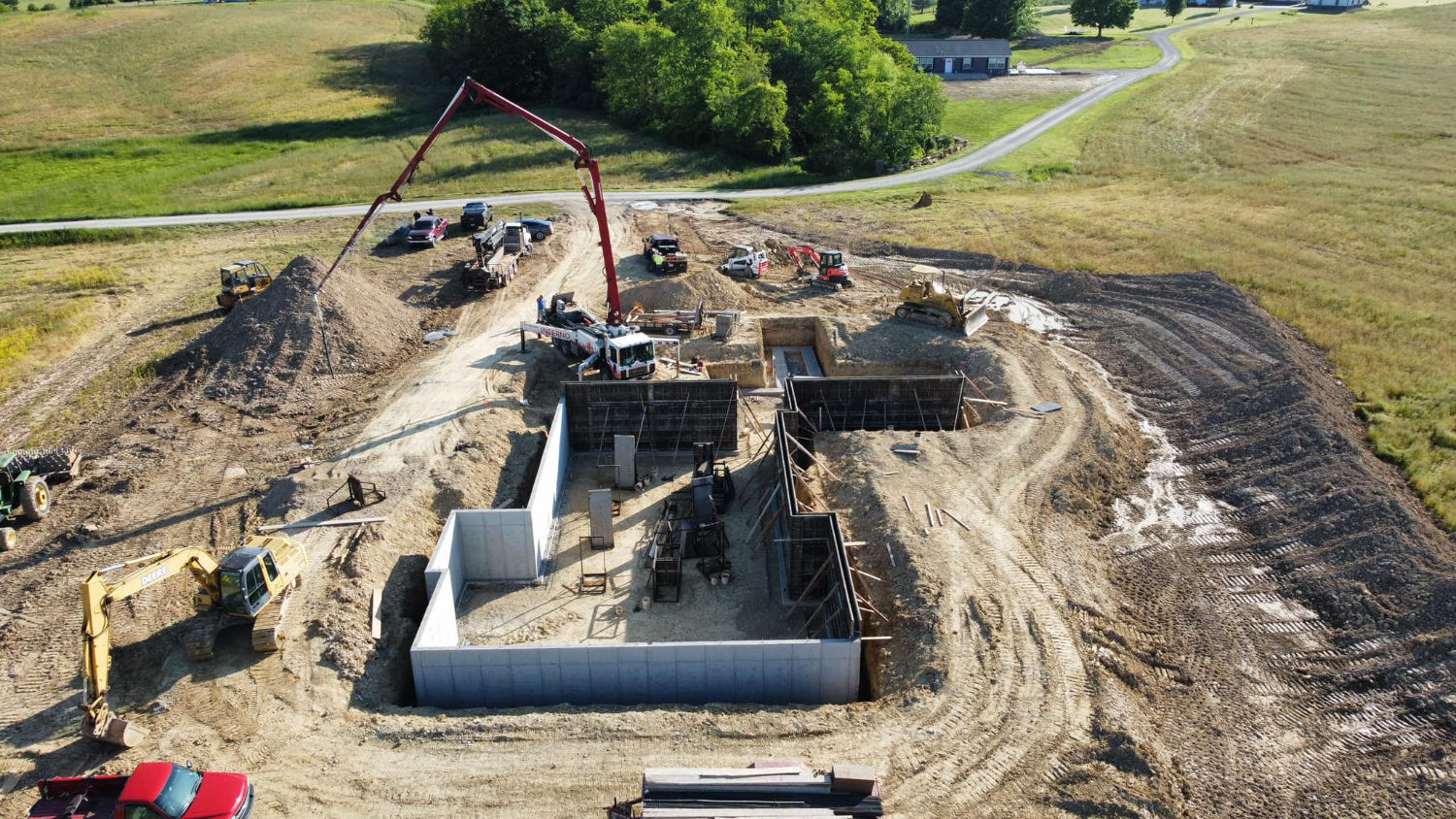
The Foundation Building Process
1.
Clearing & Excavating
Proper site prep is crucial to laying a good foundation. As an all-in-one site prep contractor, we will clear, excavate, and grade the site based on the layout plan for your foundation.
2.
Digging and Pouring Footers
Concrete footings serve as a level support base for the walls built on it, and we do all the trenching and pouring for footer construction.
3.
Pouring Concrete Walls
Once the ground is prepped and the footers are in place, it’s time to pour in place the concrete walls for your new build. When the concrete is fully hardened, the framework is removed to reveal the poured walls. As a final step, we provide waterproofing services.
Advantages of Poured Concrete Walls vs. Block Walls
Though block wall has been the traditional method for building foundations, poured concrete walls are preferred for their superior strength, durability, and adaptability. Read below to learn about these two building techniques and the advantages of poured concrete.
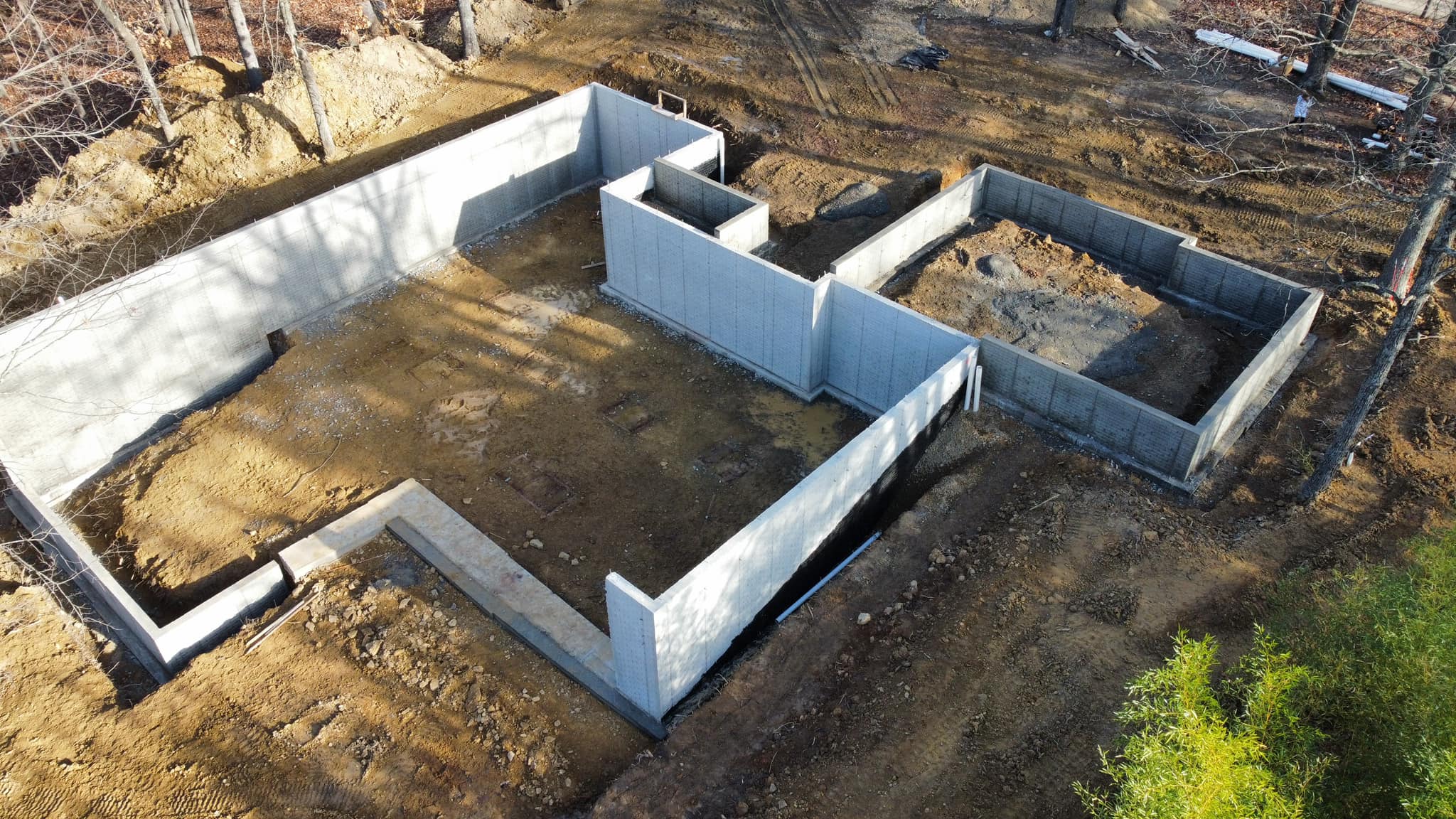
5 Reasons to Choose Poured Walls over Block Walls
1
Strength
Since poured walls are completely solid (unlike block walls), they have greater resistance to lateral pressures from soil and water that can cause cracking.
2
Water Resistance
Poured concrete walls are joint-free, so they are more impervious to water than cinder block foundations, which are more susceptible to leaks from the joints. Poured walls are also less prone to buckling and bowing from lateral pressure.
3
Fire Resistance
Poured concrete has improved fire resistance compared to block wall due it its joint-less construction and higher density.
4
Layout Flexibility
The liquid nature of poured concrete allows it to be molded into a variety of layout designs for custom basement configurations.
5
Durability
Poured concrete's strength and resistance to pressure from water and earth allow it to last for many years with little maintenance and without cracks or leaks.
Ready to start your foundation building with poured wall?
Call Tony today to set up a free in-person consultation.
